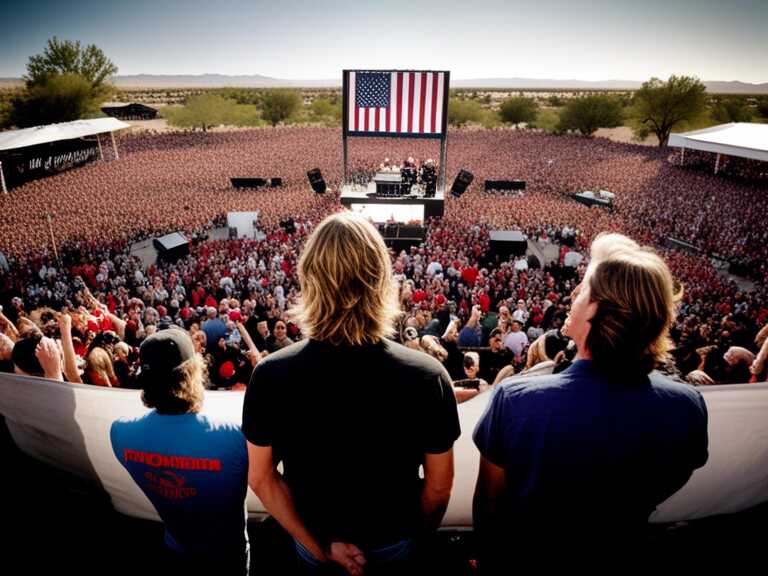
Foo Fighters Reject Trump's Use of 'My Hero' at Arizona Rally, Will Donate Royalties
Foo Fighters criticized Trump for using their song "My Hero" at a rally without permission.

Former President Donald Trump has once again found himself in hot water, this time with the renowned rock band Foo Fighters. The band expressed outrage at Trump's unauthorized use of their song "My Hero" during a recent campaign rally in Arizona. The rally took an unexpected turn when former independent candidate Robert F. Kennedy Jr. endorsed Trump after suspending his own presidential campaign.
Foo Fighters' Response
The band's representatives swiftly issued a strong statement to CBS News, denouncing the unauthorized use of their music. They asserted that had they been asked for permission, it would have been unequivocally denied. In a bold show of disapproval, the band announced that any royalties stemming from the misuse of their song would be forwarded to the campaign of Vice President Kamala Harris and Gov. Tim Walz.
Trump's Ongoing Music Mishaps
Regrettably for Trump, this is not an isolated case of his campaign employing music without proper authorization. In a recent social media post, a Trump campaign spokesperson, Steven Chueng, shared a brief video of the former president disembarking from a plane as Beyoncé's "Freedom" played in the background. This unauthorized use prompted a prompt cease-and-desist notice from the music icon's record label and producer. Similarly, the estate of the late soul legend Isaac Hayes issued a resolute threat of legal action against Trump's campaign for its unapproved use of "Hold On, I'm Coming" at his rallies. The estate demanded a substantial $3 million in licensing fees for the song's extensive use. Notably, the song had reportedly been played a staggering 134 times during Trump's campaign events. Even the internationally acclaimed Celine Dion found herself embroiled in a dispute with the Trump campaign, as they utilized her hit song "My Heart Will Go On" without permission, drawing bemused disbelief from her representatives.
Implications and Ramifications
These repeated clashes over unauthorized music usage reflect poorly on the Trump campaign. Such disputes not only tarnish the campaign's reputation but also highlight a concerning disregard for established copyright and intellectual property rights. The persistent failure to seek proper permissions and licenses for the use of copyrighted material may have significant legal and financial ramifications. The subsequent need to issue cease-and-desist notices, as well as the potential for costly litigation, represents a disruptive and avoidable burden for any campaign. Furthermore, the public perception of appropriating artists' work without consent can be highly detrimental, particularly in the realm of politics where public image and ethical conduct are under constant scrutiny.
Policy and Protocol
Given the escalating frequency of such disputes, it becomes increasingly imperative for political campaigns and their affiliated organizations to uphold and adhere to strict protocols regarding the use of copyrighted material. This entails obtaining the necessary permissions and licenses from rights holders, in full accordance with copyright laws. By diligently following these procedures, campaigns can demonstrate respect for artists' rights and intellectual property, while also safeguarding themselves from potential legal entanglements and reputational damage.
Artists and their representatives hold the legitimate rights to control the use of their creations, and it is incumbent upon political entities to recognize and acknowledge these rights. By engaging in transparent and respectful communication with rights holders, campaigns can foster positive and mutually beneficial relationships with the artistic community. This proactive approach not only averts the risk of contentious disputes but also fosters a culture of compliance and ethical conduct within the political sphere.
Share news















